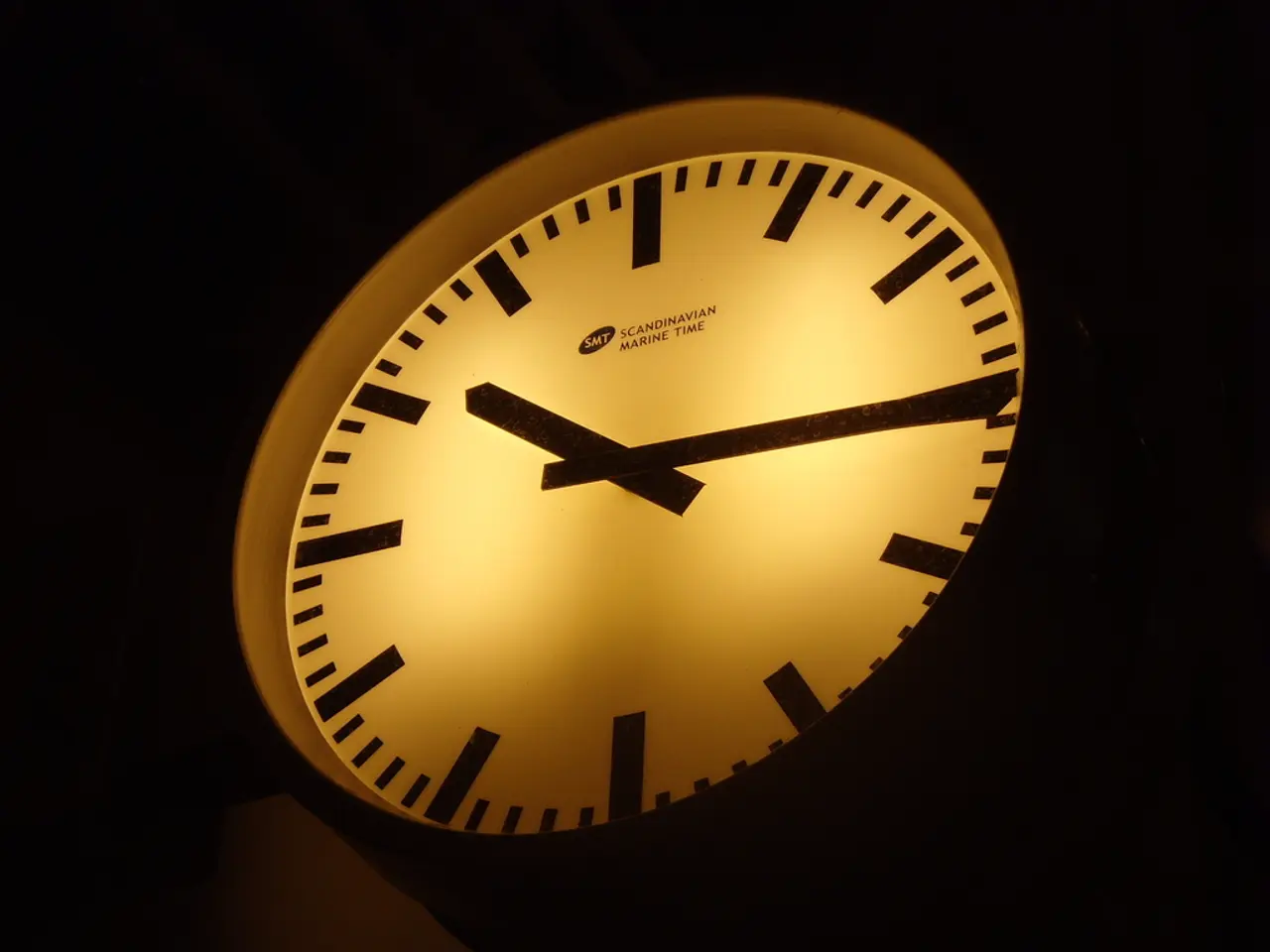Impact of Artificial Lighting on Mental Focus and Clarity
=====================================================================
In today's digital age, artificial lighting plays a crucial role in extending our daytime activities. However, recent research suggests that misuse of artificial lighting, particularly exposure to blue light at night, can have detrimental effects on cognitive functions and mental well-being.
Sleep Quality and Cognitive Performance
Artificial light at night, especially from screens and indoor lighting, can confuse the brain into thinking it's still daytime, suppressing melatonin production. This leads to difficulties falling asleep, poorer sleep quality, and circadian misalignment. Poor sleep, in turn, impairs cognitive functions such as attention, memory, and executive functions.
Cognitive Impairments and Brain Health
Disrupted circadian rhythms can also alter brain function beyond sleep. Artificial light at night causes changes in neuroinflammation and immune function, which can negatively impact brain health and cognitive abilities. Cognitive impairments are often linked to sleep disruptions caused by artificial lighting.
Mood and Emotional Well-being
Insufficient or poorly timed light exposure can induce negative emotions including depression, anxiety, and irritability. Conversely, appropriate light exposure, especially natural sunlight, positively influences mood and psychological well-being. Lack of daylight is linked to Seasonal Affective Disorder (SAD), increased agitation, and stress. Artificial light at night has also been shown to contribute to mood disorders by disrupting circadian regulation of mood-related brain systems.
Minimizing Negative Impacts
To minimize these negative effects, recommendations include limiting exposure to blue light in the evening by avoiding screens or using blue light filters/glasses. Increasing exposure to natural daylight during daytime hours can strengthen circadian alignment and improve mood and cognitive function. Designing environments (e.g., workplaces, hospitals) to minimize disruptive artificial lighting at night is also crucial. Maintaining consistent sleep schedules aligned with natural light-dark cycles is essential.
Strategies for Better Cognitive Functioning and Mental Well-being
As evening approaches, transitioning to warmer, dimmer lighting can prepare the body for sleep. Smart lighting technologies enable users to customize their lighting based on time of day, activity, or mood. Human-centric lighting (HCL) is an innovative approach that prioritizes human health and productivity by simulating natural light variations throughout the day. Maximizing exposure to natural light during the day can significantly improve cognitive function and mood. Establishing routines that reduce exposure to bright and blue light in the evening can help promote better sleep and cognitive function.
In conclusion, while artificial lighting is beneficial for extending daytime activity, it can act as a biological disruptor when misused, impairing sleep, cognitive performance, and emotional health. Employing strategies to reduce nighttime artificial light and maximize daytime natural light exposure supports better cognitive functioning and mental well-being.
References
[1] Czeisler, C. A., Gooley, J. J., & Figueiro, M. G. (2019). Circadian sleep disorders: An unmet global public health problem. The Lancet Psychiatry, 6(8), 649-659.
[2] van den Berg, L., Llewellyn, D. C., & van den Brink, W. (2017). The impact of light on mood and cognition. Neuropsychology, Development, and Cognition, 29(3), 141-151.
[3] Figueiro, M. G., Rea, M. S., & Reid, K. J. (2018). Lighting and human circadian health. Sleep Medicine Reviews, 38, 71-81.
[4] Wirz-Justice, A., & Llewellyn, D. C. (2010). The role of light in the treatment of seasonal affective disorder. Current Opinion in Psychiatry, 23(6), 549-554.
[5] Häusler, J., & Gooley, J. J. (2019). Blue light exposure at night and circadian physiology. Sleep Medicine Clinics, 14(2), 139-147.
- The misuse of artificial lighting, specifically blue light at night, can adversely affect productivity, concentration, and memory, according to recent scientific research.
- Innovations in technology such as smart lighting can help minimize the negative impacts of artificial light on cognitive functions, improves attention, and enhances focus during daytime activities.
- Rapid advancements in artificial intelligence (AI) are driving the design of human-centric lighting (HCL) systems, which prioritize mental health by closely mimicking natural daylight variations.
- Disruptions to the circadian rhythm due to increased screen time and indoor illumination can lead to sleep disorders, affecting relaxation and overall mental health.
- By adhering to a regular sleep schedule and strategically limiting evening screen time, individuals can maintain better cognitive performance and mental well-being.
- Exposure to sufficient daylight during daytime hours has been shown to boost cognitive function, enhancing mental health and overall brain health.
- While artificial lighting improves our ability to perform various tasks, it is crucial to understand its impact on health-and-wellness, including sleep, memory, and mental-health issues.
- The association between poor sleep quality and anxiety has been extensively studied, suggesting that sleep difficulties can exacerbate feelings of anxiety and depression.
- Conversely, maintaining optimal circadian alignment through reduced evening blue light exposure and increased daytime natural light can help combat anxiety and related mood disorders.
- In the quest for better mental health, further research is needed to explore the interactive effects of artificial lighting, technology, and human cognition to develop effective strategies for promoting mental well-being.
- Ultimately, by understanding the complex relationship between artificial lighting, cognitive performance, and mental health, we can prioritize holistic wellness strategies for ourselves and future generations.




